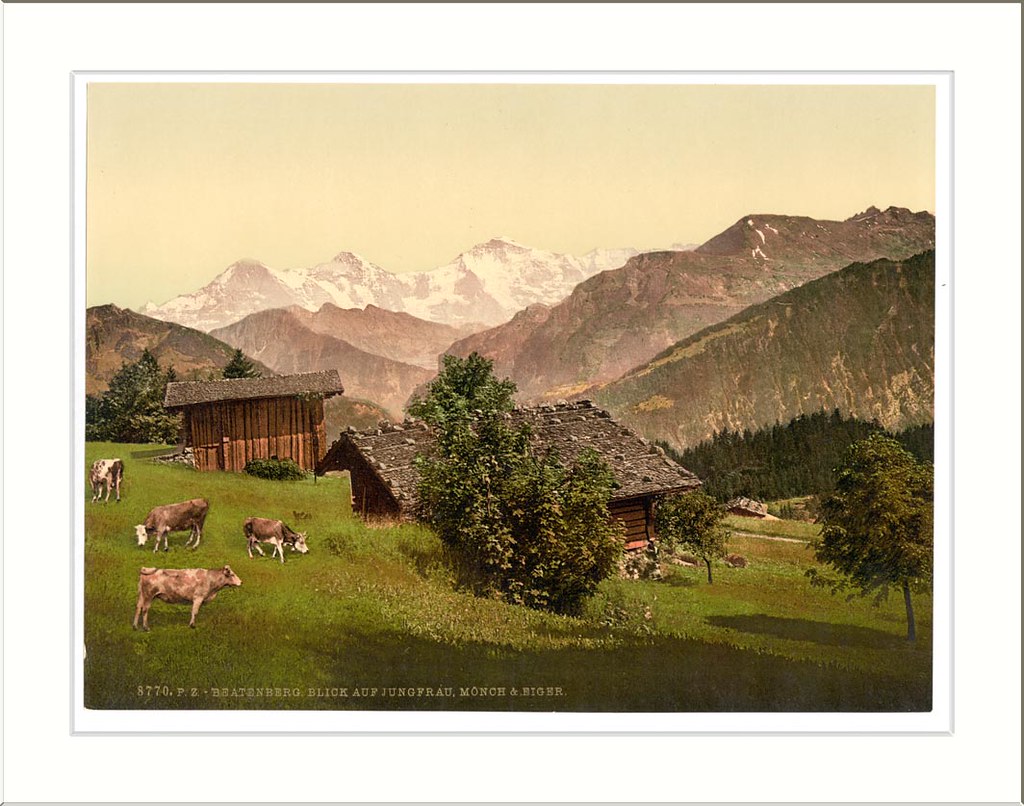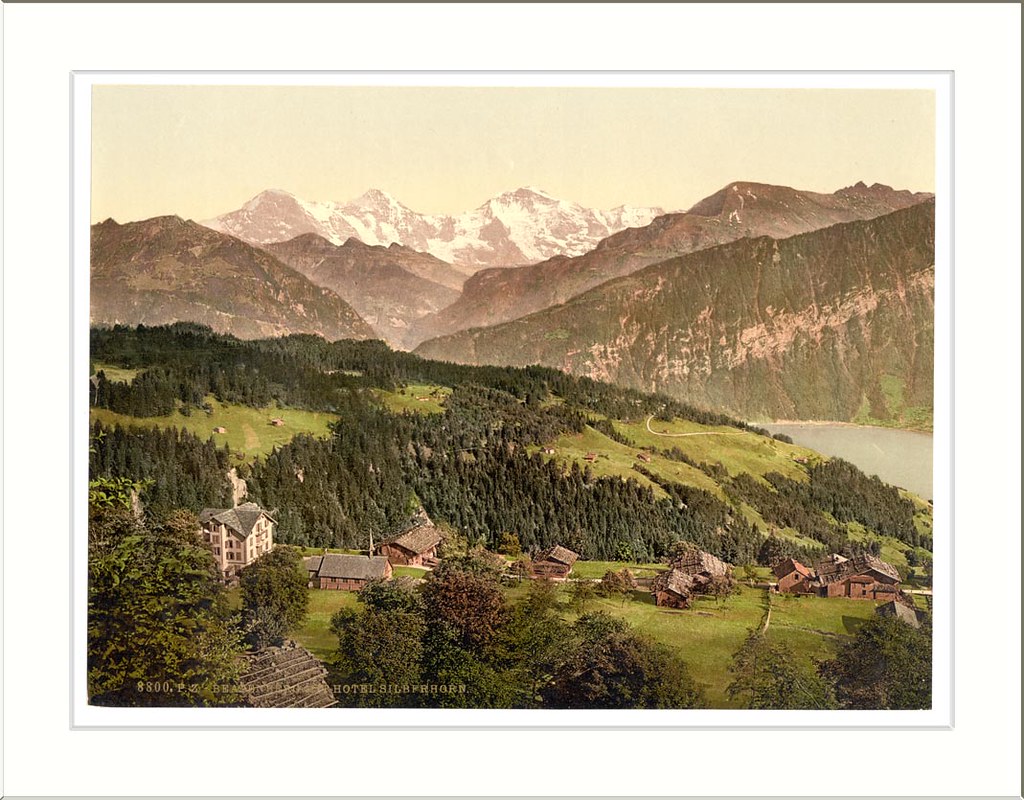.

Beatenburg (i.e. Beatenberg): View of Jungfrau, Mönch and Eiger, Bernese Oberland, Switzerland: photochrome colour print, photographer unknown, between c. 1890 and c.1900; image by Snapshots of the Past, 8 January 2007 (Library of Congress)
There is a rustling of animals at night,
they breathe like us.
Have you ever felt it,
this Substance with a thousand wounds
at moments when it's quiet in the mountains,
up in the cold air,
in this Nature, this Crypt? --
Do not be cross with me,
even if from a hundred mouths
it had in you disparaged me,
still I honor you!
Everybody quarrels with himself,
climbs from the summit of his discontent
slowly into the vale
on paths as small
as tongues pronouncing attitudes
which have swung round,
and everybody reverts, deserting spirit,
into a bit of happiness,
to take a distance from what they imagined.
Have you seen it, with great eyes
standing in the forest, the creature
that witnessed wars against the Huns?
Last night I did come close to her.
Now here I sit.
The locomotives race across the lands.
Across the ocean fly the ships.
Robert Walser (1878-1956): The Creature, from Prager Tagblatt, October 1925, in Robert Walser: Thirty Poems, selected and translated by Christopher Middleton: Christine Burgin/New Directions 2012

Beatenberg: View of Jungfrau, Mönch and Eiger, Bernese Oberland,
Switzerland: photochrome colour print, photographer unknown, between c.
1890 and c.1900; image by Snapshots of the Past, 8 January 2007 (Library of Congress)

Beatenberg Village and Hotel Silberhorn, Bernese Oberland, Switzerland: photochrome colour print, photographer unknown, between c. 1890 and c.1900 (Library of Congress)



5 comments:
grass to cows to dairy products - one kind of economy
whereas tourism brings in the products of urban industry
- and parenthetically, the only two people i've known named "heidi" were latinas
I don't know how you come up with such amazing postings, Tom. They're really daily inspirations of a world gone wrong and right in quick alternating currents... with such compassion and panache.
Now, this Swiss one is really interesting to me, as our son married a Swiss miss and lives with two young kids outside of Lucerne, working in Zug. We've visited him there, before marrying and after, about three or four times... Switzerland, like Nigeria, places I've been to not of my choice exactly, and not of my preference given a map of the world and a few pins. But there indeed I've been. Switzerland, famously, in spite of the Cabaret Voltaire (which is a little wee museumy like place with postcards on sale, etc.) is achingly squeaky clean and regimented, the people friendly but guarded, and everything annoyingly on time... And so the artists, Walser, Klee, Hesse, are either mad or very interested in madness, to get out of the
"quiet in the mountains,
up in the cold air,
in this Nature, this Crypt?
He puts it so succinctly. We drove down to Italy once with our son and I loved the slovenliness of it all, even with the worst lunch I've ever eaten... (I thought ALL restaurants in Italy would be perfect.) And kept seeing in my mind taciturn Pound in his florid hat as we drove through Rapallo.
Cows on hills. Chill landscapes. Where's the door!
‘ . . . the creature that witnessed wars against the Huns . . .’ How fine a sense of Time and duration here, with just a glimpse at history, war-scarred as it is, to orient us as we climb down from the heights to make our “little stabs at happiness”—in a world, a reality, that we think we’ve altered to make Nature no longer necessary.
"If we had a keen vision and feeling of all ordinary human life, it would be like hearing the grass grow and the squirrel's heart beat, and we should die of that roar which lies on the other side of silence."
George Eliot, Middlemarch
Squeaky clean, yes. And no one bothered to put in a door.
If they had, the creatures (and the artists) might have got out.
Post a Comment